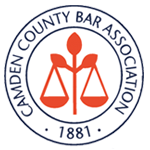 Work-related accidents happen every day. While many employees get out of accidents with injuries and a hospital stay, there are times when employees lose their lives due to a work-related accident or illness. Losing a loved one due to being injured on the job takes a serious toll on a family’s wellbeing, in addition to their finances.
Work-related accidents happen every day. While many employees get out of accidents with injuries and a hospital stay, there are times when employees lose their lives due to a work-related accident or illness. Losing a loved one due to being injured on the job takes a serious toll on a family’s wellbeing, in addition to their finances.
If you have lost a family member as a result of a work-related disease or injury, you may be entitled to death benefits.
Death Benefits Through Your States Workers’ Compensation Program
Death benefits are given to family members of the deceased, referred to as the decedent, to compensate them for lost financial support. Children, spouses, and close relatives who lived with the employee normally receive death benefits.
When a loved one dies due to a work-related incident, dependents have between one to two years from the date of death to file a claim, although this may vary by state. In New Jersey, this is two years.
Eligibility
The surviving spouse will almost always receive death benefits regardless of their own income. However, in some states spouses may have to prove their financial dependence.
Children under the age of 18 are considered dependents, as well as older children with mental or physical handicaps. In New Jersey, children are considered dependents until the age of 23 if they are enrolled in qualifying educational or vocational programs.
Generally, family members must be between 18 and 40 to collect death benefits.
Receiving Death Benefits
A work-related accident or illness must have contributed to an individual’s death in order to receive death benefits. Regardless of whether a loved one died on the job or years later due to a work-related illness or injury, you are still eligible to receive benefits.
If the employee’s death does not take place immediately on the job, the dependents of the decedent are responsible for proving that the accident contributed to the death.
Lump Sums and Partial Payments
Death benefits are normally paid out in installments. A loved one normally gets a percentage of what the employee used to earn prior to their injury. However, this may vary based on the state.
Typically, a family member will receive a weekly payment that is two-thirds what the decedent made per week. In New Jersey, payment is 70 percent of the decedent’s average weekly wage, up to a limit set by law annually.
Benefits usually end when the surviving spouse dies or remarries in most states, including New Jersey. If a child is getting death benefits, they will usually end when the child turns 18 or when they complete either post-secondary education or a vocational program.
In New Jersey, death benefits also provide burial expenses up to $3500.
Cherry Hill Workers’ Compensation Lawyers at Pietras Saracino Smith & Meeks LLP Represent Individuals Filing Death Benefit Claims
Claiming worker’s compensation can be a very confusing process, but the Cherry Hill workers’ compensation lawyers at Pietras Saracino Smith & Meeks LLP are here to help you through it.
If you or someone you know lost a loved one due to a work-related accident or illness, you may be eligible to receive death benefits. We will fight to get you the compensation and peace of mind you deserve. For a free consultation contact us online or contact us by phone at 856-761-3773. Our office is located in Cherry Hill, New Jersey, and we proudly serve clients in the City of Camden and throughout South Jersey.












